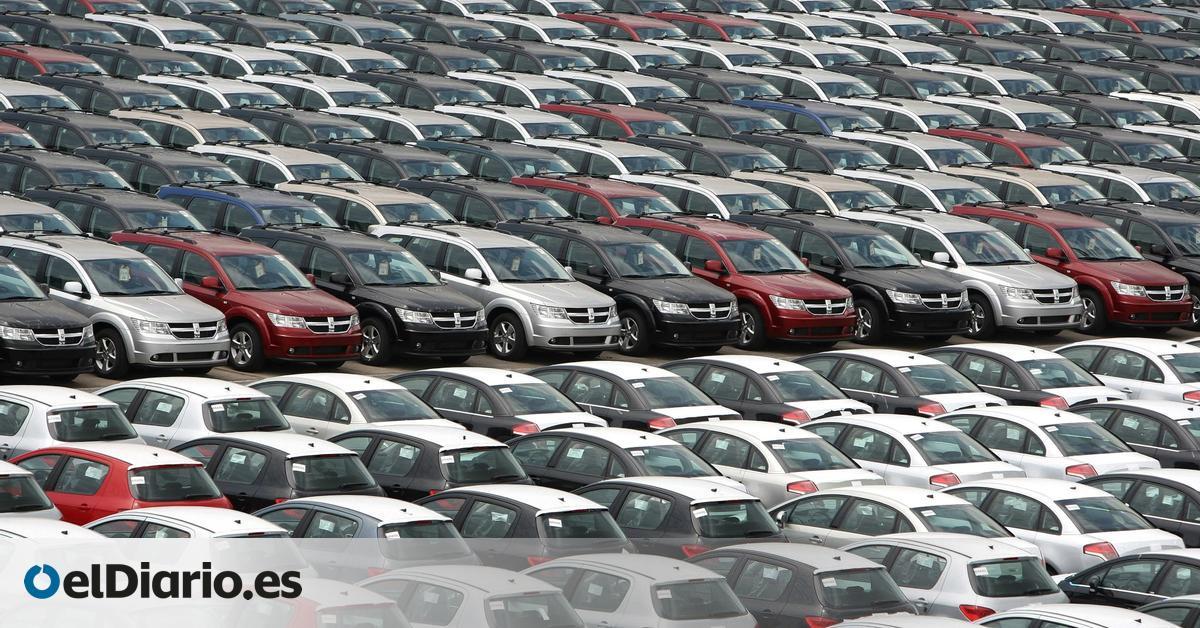
The European Parliament has given final approval to the agreement reached with the Commission and the European Council to ban the sale of diesel and gasoline cars and vans from 2035. This is the first proposal for the ‘fit for 55’ package -with which the EU intends to reduce 55% of emissions by 2030 – which is formally approved. The plan has gone ahead despite the rejection of the European PP and the extreme right. The plan has gone ahead with 340 votes in favor, 279 against -among them those of PP, Vox and PNV- and 21 abstentions.
Particle pollution spewed out by fossil fuels makes it harder to conceive a child
Further
The regulation sets two deadlines for reducing emissions from private vehicles: the first CO2 reduction target is 55% for new cars and 50% for new vans by 2030 compared to 2021 levels; and the second is 100% for new cars and vans by 2035. That gives, according to the proponents of the agreement, sufficient leeway for the industry to adapt.
That is one of the arguments used by the liberal MEP Jan Huitema, who has been in charge of preparing the report, to ensure that the plan gives “security to investors and manufacturers”, in addition to making the EU “more independent of fossil fuels from third countries” at a time when the war in Ukraine has made clear the weaknesses of the European energy market and its dependence on Russia, among others.
The current incentive mechanism for zero or low emission vehicles rewards manufacturers that sell more zero or low emission vehicles with lower CO2 emission reduction targets. These are vehicles with emissions between zero and 50 g of CO2/km, such as electric vehicles and plug-in hybrids with good performance. From 2025 to 2029, the zero or low emission vehicle benchmark is set at 25% for new car sales and 17% for new vans. Starting in 2030, this incentive will disappear.
“This measure will facilitate the evolution of the market”, has defended the Social Democrat, Sara Cerdas, who has assured that “prices will be reduced”. “The sector has sent us the message that it is prepared. The time has come for the EU to take responsibility for its emissions”, she stated.
“We did it. It is a historic agreement that articulates the industry with the climate. It is an achievement because they are normally antithetical terms”, said Karima Delli, of the Greens, who has been especially proud of the agreement in her capacity as president of the Transport Commission. “It has been said that the combustion car is ending, but it is being replaced by the electric car”, she has defended.
The right has rejected the agreement on the premise that it puts European industry at risk. “It is a tremendous strategic error”, has pointed out the Belgian deputy of the PP Pascal Arimont about the objective of banning diesel and gasoline vehicles by 2035: “No one doubts that the electric car is important to reduce emissions, but betting everything on a letter has nothing to do with strategic acumen.” Thus, he has stated that it would be necessary to diversify the technologies.
PP, Vox and PNV, against
“The great defenders of the red-green front, nourished by the consumer, so panchos ask us for things that do nothing more than displace millions of jobs to third countries,” charged the representative of the extreme right of Identity and Democracy Sylvia Limmer, who He has assured that “there is no mobility with zero emission”.
The group of La Izquierda has shown some doubts regarding the agreement reached by stating that “the intermediate objectives could have more ambition.” “Luxury cars are exempt with this that less than 1,000 are sold,” Cornelia Ernst has reproached. Manufacturers with low production (between 1,000 and 10,000 new cars or between 1,000 and 22,000 new vans per year) will be eligible for an exemption until the end of 2035. Those who declare less than 1,000 new vehicles per year will continue to be exempt.
His colleague from the bench, Marine Mesure, has branded the objectives as “irresponsible” since he has warned that electric vehicles are expensive so “people are going to go to thermal ones.” She has also warned that the manufacturing process is not attended to since lithium “is very polluting.”
PP, Vox and PNV have voted against the proposal, which has been supported by PSOE, Ciudadanos -with the exception of José Ramón Bauzá- Podemos, IU and ICV. In Spain, the climate change law established a period of 20 years (until 2040) for the disappearance of combustion vehicles, so the regulation will have to be slightly adapted to what was agreed within the 27. The PNV has defended that the emission reduction be 90% in 2035 and not 100% as decided in Brussels.
Brussels proposes a path to reduce emissions for trucks and buses
Several MEPs have urged the co-legislators to put on the table a proposal to limit emissions in the cases of trucks and heavy vehicles, which for now have been left out of the legislative framework. It generates more suspicions since it is work material in many cases of autonomous people, that is, self-employed.
Just on the day that the European Parliament has given the final green light to the plan for cars and vans, the European Commission has made public its plan for heavy vehicles for which it proposes a path to reduce polluting gases: 45% in 2030 for long distance trucks and buses; 65%, in 2035; and 90%, in 2040, compared to 2019 levels. For municipal buses, it establishes that those that are marketed from 2030 must be zero emissions (not in the case of interurban buses, which will have the same consideration as trucks ).
“It is ambitious, but it is absolutely possible,” said the vice president of the European Commission for the Green Deal, Frans Timmermans, when presenting the plan with which Brussels intends to reduce pollution from this type of transport, which is responsible for 25% of greenhouse gases in the EU. The proposal now has to be agreed with the member states and the European Parliament.
The Greens have questioned the proposal, which they see as unambitious. “This is bad news for all citizens and sends the wrong signal to manufacturers. With this proposal, the Commission questions the goal of achieving carbon neutrality by 2050. In doing so, it tries to please the European right. wing, which is trying, by all means, to hinder the effective application of the Green Deal”, says Yannick Jadot in a statement, who regrets that it is recognized in this way that trucks can continue to circulate on fossil fuels beyond 2050.
Source: www.eldiario.es

